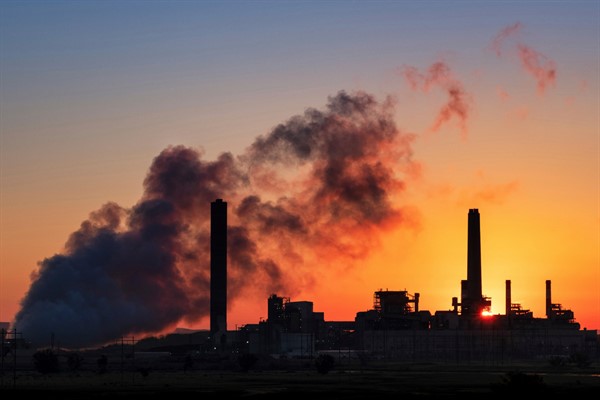Humanity is at war with the living planet, endangering our prosperity and indeed our very survival on Earth. That is the stark message of the 30th Human Development Report, “The Next Frontier: Human Development and the Anthropocene,” released last week by the United Nations Development Program. For too long, we have pursued an economic model of development based on unsustainable production and consumption, heedless of the impact on the natural world in which we are inextricably embedded. The bill is now coming due. The COVID-19 pandemic, which began as a zoonotic disease, is only the latest example of the pressures we are placing on the planet. Unless we abandon our destructive ways and embrace a new ethic of environmental stewardship, we will endanger the integrity of the biosphere upon which human civilization ultimately depends.
Since 1945, the world has achieved remarkable economic growth, bringing hundreds of millions of people out of poverty and improving the lives of billions more. Unfortunately, these material gains have come at grievous cost to nature, including in the form of runaway climate change, collapsing biodiversity and rampant pollution. Humanity has altered the composition of the atmosphere, the chemistry of the oceans, the contours of landscapes and seascapes, the distribution of species, and so much more. People are now the most powerful force shaping the entire integrated Earth system, and we are pushing up against planetary boundaries that constitute a “safe operating space for humanity.” So great is our cumulative impact that many scientists favor designating an entirely new geological era: the Anthropocene, or Age of Humans. It is an era, the UNDP notes, “in which the dominant risk to our survival is ourselves.”
Unfortunately, our economic models have failed to adjust to these ecological realities, placing humans and the planet on a collision course. It need not need to be this way. There is no inevitable contradiction, the UNDP explains, between the needs of humanity and the viability of nature, no inherent trade-off between economic growth and a healthy biosphere. We need to retire the false development choice of “people versus trees.” The solution lies in formulating public policies, incentivizing behaviors, encouraging norms and empowering communities to ensure that market behaviors contribute to sustainable rather than rapacious development.

